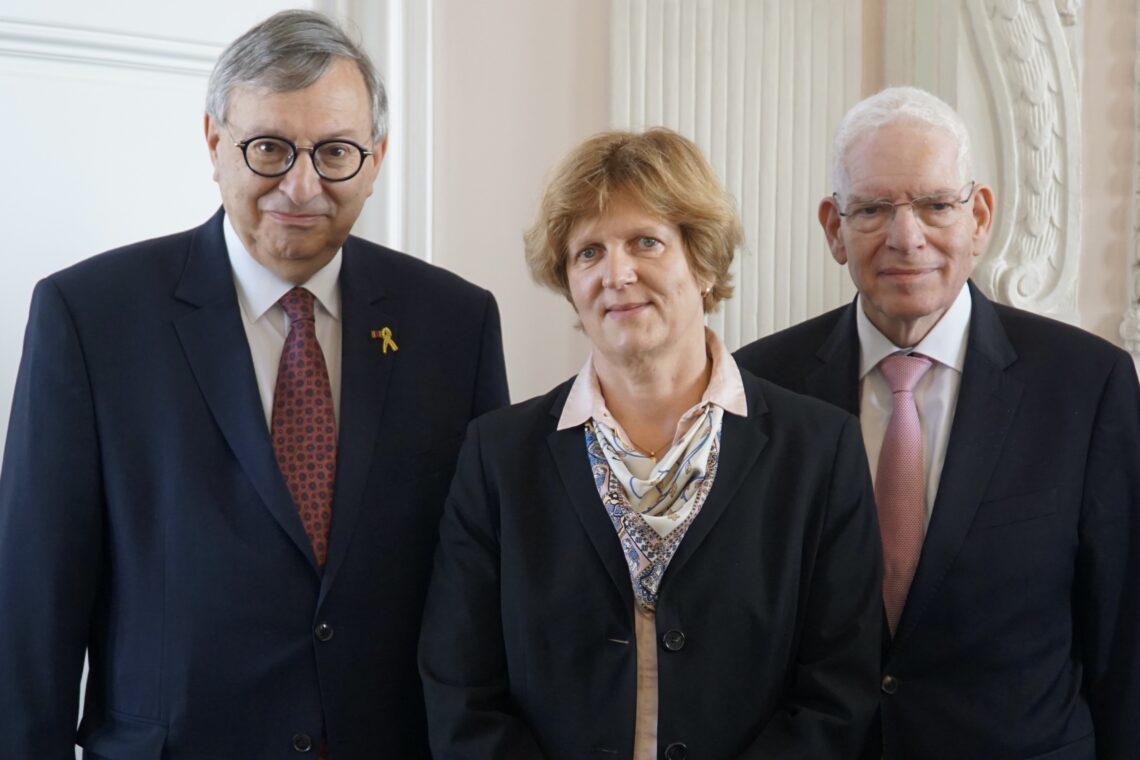Lecture at the Military Rabbinate of the Central Council of Jews
(Bonn, 27.12.2024) Prof. Dr. Christine Schirrmacher gave a lecture on “The Human Rights Debate between Universalism and Cultural Relativism: Positions and Discussions in the Context of Islamic Societies” at the Military Rabbinate of the Central Council of Jews in Germany, Berlin.
Schirrmacher explained the intensive debate on human rights in the context of Middle Eastern societies, which is essentially characterized by the question of whether the universal claim of human rights can be reconciled with the pluralism of cultures. Are there universally definable human rights that apply to all cultures (according to the representatives of universalism) or must human rights always be defined in relation to the respective culture (according to the representatives of cultural relativism)?
In the context of the Middle East, three different responses to the 1948 UN Universal Declaration of Human Rights can be identified. Although the declaration was drafted in the aftermath of the devastating human rights violations of World War II in the Western context, some Muslim-majority states were also involved in its formulation.
On the one hand, this involves the complete rejection of the UN Declaration as a Judeo-Christian construct and a product of Western imperialism. Representatives of this position are mainly supporters of a political Islam/Islamism. On the other hand, there is a formal affirmation of the UN Human Rights Charter under the claim that it is Islam that has formulated and guarantees the actual human rights. The terminology of the UN Charter is adopted, but the content is redefined. Thus, for example, women’s rights can be affirmed in principle, but this is done with reference to the fact that the actual women’s rights were proclaimed with the revelation of Islam and lie in the imitation of the women’s roles from the times of Muhammad. Third, there is also holistic agreement with the human rights defined by the UN as universal rights, which are often associated with demands for reforms and improvements in the human rights situation in Islamic countries.
The Central Council of Jews in Germany, a public corporation, was founded in 1950 as the political and religious representative of Jews in Germany and is the largest umbrella organization of Jewish communities and state associations. The Military Rabbinate, a department of the Bundeswehr with its headquarters in Berlin and five branch offices, is the Jewish military chaplaincy, which employs six military rabbis. They are appointed by the Ministry of Defense in consultation with the Central Council of Jews.
Downloads and Links
- Photo: Christine Schirrmacher with the Vice President, Abraham Lehrer (left), and the President, Dr. Josef Schuster (right), of the Central Council of Jews in Germany © ISHR/Martin Warnecke
- The Jewish Military Chaplaincy team: https://www.bundeswehr.de/de/betreuung-fuersorge/militaerseelsorge/juedische-militaerseelsorge/militaerrabbinat-team-juedische-militaerseelsorge
- Press release “Inauguration of the military rabbinate and delivery of the Torah”: https://www.zentralratderjuden.de/aktuelle-meldung/presseerklaerung-einweihung-militaerrabbinat-und-uebergabe-der-tora/
- The military rabbinate: https://www.zentralratderjuden.de/der-zentralrat/institutionen/militaerrabbinat/

